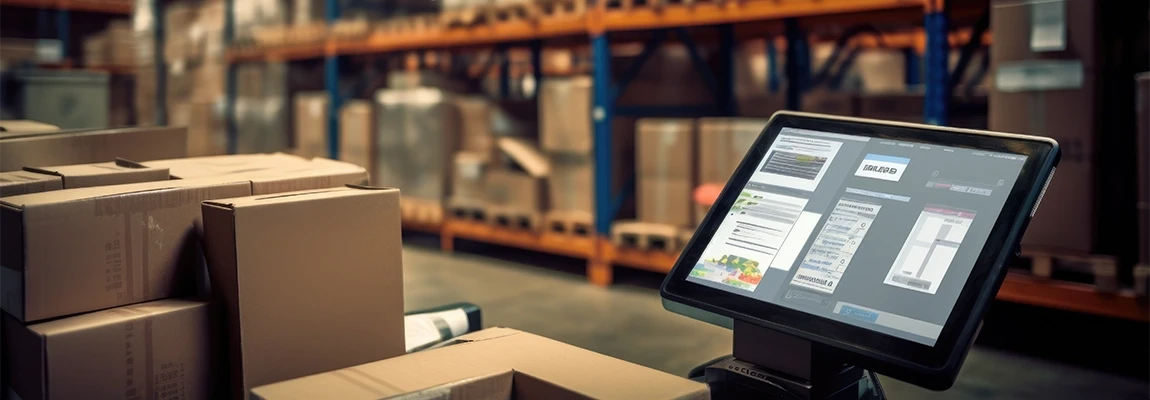Logistic Regression assists industries like wine and beverage in determining the factors that impact the speed of inventory movement. This case study discusses the methodology to discern key influencers affecting the wine and beverage category’s inventory run rate.
Client Background
The client, a leading supplier, faced the challenge of enhancing efficiency within the distributor-retailer network. The primary objective was to increase the inventory run rate and demand for products while navigating multiple distributor warehouses. The challenge lay in discerning the pivotal factors influencing inventory run rate.
Client’s Objectives
The client sought a comprehensive understanding of the intricate facets affecting inventory run rates. They sought to mitigate stagnant inventory by emphasizing high-performing items and to refine stocking strategies across diverse locations. By leveraging this detailed analysis, they aimed to optimize inventory turnover, reduce overstocking, identify factors to improve demand forecasting accuracy , and customize strategies to bolster overall effectiveness within the competitive wine and beverage domain.
Solution Provided
CI Global leveraged its expertise in analytics & logistics and utilized logistic regression techniques to analyze the wine and beverage sales and logistics domain. Using ML.NET, (a framework for building machine learning models) the team crafted a strategic approach to uncover the key influencers impacting inventory run rates.
Methodology
The methodology used for the solution involves a strategic application of logistic regression for:
- Identifying Influential Factors: CI Global collaborated closely with the client to outline the factors influencing inventory run rates. This involved analysis of brands, product categories, bottle sizes, and geographic locations.
- Domain-Centric Analysis: Recognizing the nuances of the wine and beverage industry, CI Global fine-tuned the regression models, considering varietals’ impact on warehouse space and the geographic segments (e.g., state-wise sales dynamics).
- AI-Driven Insights: Harnessing the power of ML.NET, CI Global automated the formulation of regression models, efficiently processing vast datasets to identify critical influencers affecting inventory run rates.
Key Factors Analyzed
- Brand and Item: CI Global scrutinized the impact of diverse brands and specific items on inventory run rates. This involved assessing the movement pace of distinct brands and individual items within warehouse stocks.
- Varietal and Bottle Size: Examining varietal variations (e.g., red, white) and bottle sizes provided invaluable insights into their influence on warehouse movement. CI Global’s analysis elucidated how these variations affected turnover rates, which helps in inventory management.
- Warehouse Location: CI Global meticulously evaluated the role of geographic locations in influencing inventory turnover and sales patterns. This scrutiny allowed the client to discern regional preferences and demand variations, optimizing inventory distribution across diverse locations.
Insights and Impact
- Optimized Inventory Management:
CI Global’s logistic regression analysis precisely identified slow-moving inventory items, enabling the client to streamline warehouse stocks. This strategic insight allowed them to prioritize high-performing items, reducing overstocking and creating space for faster-moving, high-profit products. By optimizing stock levels, the client improved warehouse efficiency and maximized product potential.
- Strategic Decision-Making:
Leveraging insights from regression models, the client made informed, data-driven decisions on product categories, brands, and geographic segments. This strategic approach empowered them to tailor strategies and inventory management, especially during peak seasons, optimizing stock allocation and enhancing product performance in the market. The ability to target specific segments and categories led to more effective marketing initiatives and resource allocation, ultimately driving increased revenue.
- Understanding Product Demand:
The client understood the demand for certain products by pinpointing influential factors impacting inventory run rates. This involved timely restocking of high-demand products and minimizing slow-moving inventory, directly impacting profitability. The ability to swiftly adapt inventory levels to demand fluctuations optimized the stocking of certain products, resulting in increased revenue and improved bottom-line performance.
CI Global – Analytics Precision for Efficient Inventory
Applying logistic regression in the wine and beverage industry unlocks profound insights into the factors influencing inventory run rate. The case study illustrates how strategic analysis of brand, item, varietal, bottle size, and geographic location aids in identifying key influencers and driving informed decision-making to meet product demand and operational efficiency.
For personalized analytics solutions to propel your business forward in the competitive market, be it retail, healthcare, entertainment, etc, connect with CI Global today and unlock the potential within your domain.
